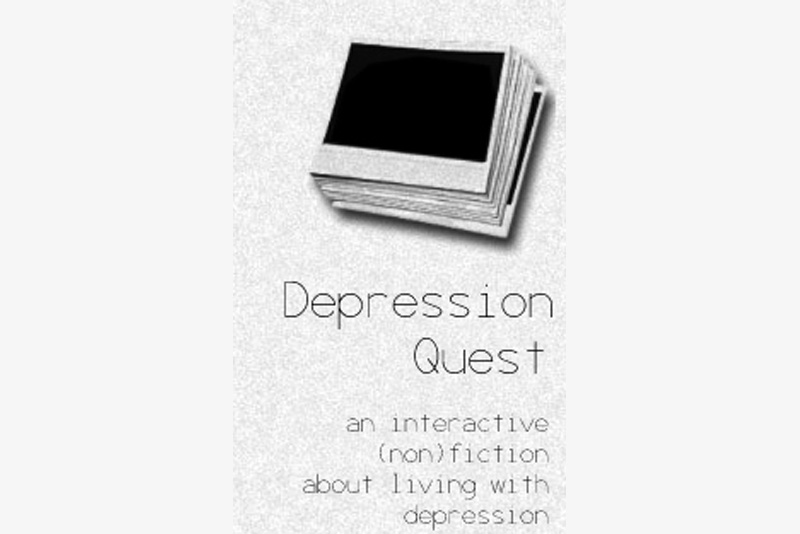What is a MMORPG?

MMORPG: Massively Multiplayer Online Role Playing Game
In the beginning, there was Dungeons & Dragons. This game swept over the gaming landscape in the 1970s, encouraging teenagers and adults to engage in imaginative puzzle-solving. Taking on the personae of a grumpy old wizard, or a brave-but-stupid warrior, or maybe a quiet, sneaky pickpocket, the group would face challenges together, grow in experience, solve riddles, strategize combats, negotiate treaties.
It was always a dream of these role players to be able to do this interaction on the computer. In fact, some of the earliest computer games were in essence single player adventures. In the mid-70s I grew up playing Adventure on a thermal-paper terminal, and graduated to Zork when that came out. Both were text only and involved a lot of puzzles and challenges to work through.
One of the first on line role playing games was Gemstone III. This was on the GEnie network, and allowed its members to take on roles, kill monsters, chat with each other, buy pretty clothes and items, and have fun. It was enormously addictive, and I spent many an evening with my group of friends on line. This was back in the late 80s and early 90s.
As the world of on line computing evolved from standalone servers like GEnie and CompuServe to the broader "internet", the world of MUSHes and MUDs opened up. These were again text based systems that were run by regular programmers, not corporations. They would be set up to recreate a certain kind of world. DuneMUSH was one of the biggest, and was the one I played on, in the early to mid 90s. It recreated the world of Frank Herbert's Dune series.
You would TELNET into a server, create a character, and then wander (reading text descriptions and giving text commands) through the world. You could even set up your own buildings, modify the room descriptions, create objects and more. It was a fully interactive environment. If you were the leader of the House Ginaz, you could roam through your mansion, customizing each room, holding events, interacting with the other characters. The aim was not combat or experience. In fact, there rarely was any of either. The full focus was on role playing, on your interactions with the other characters and the gaining of power and prestige for your faction.
The breakthrough in changing from text adventures to graphics came with Ultima Online in 1997. I was a beta tester for this, and was thrilled at the depth of the game. It was a top-down isometric view of a graphic world, much like the Ultima series on which it was based. But you could walk around and SEE your world instead of just imagining it. You could fight, but you could also catch fish, bake bread, and do all sorts of other interactions. It was phenomonally fun and caught on like wildfire.
Soon others followed - EverQuest and Asheron's Call - which both had a more realistic first-person (or over-the-shoulder third-person) view. The graphics kept being upgraded, and soon with games like Earth & Beyond and Anarchy Online you had entered a realm of pretty amazing views, from flickering fires to misty caves and floating clouds while the sun set.
In current times, there are many MMORPGs to choose from. Each has its focus, its strength and weaknesses. You can focus on combat, or focus on role playing, or focus on chatting with friends. You can explore the world, or focus on a certain area. You can work to be the 'best bowman' or focus on being the 'well known, friendly helper'. Whatever you seek that helps you feel happy, the MMORPG probably exists to bring you those feelings.
Just make sure you remember it's just a game! The one downside of MMORPGs is that the game can seem more important than reality. Your on line friends don't pick on you for ignoring chores, they love to hang around and chat with you. There are people on 24 hours a day to talk with. You can easily get more points or score more XP, where real life can be more challenging. So some people get absorbed by their on line game and neglect reality, because the on line game is more fun, more instantly rewarding, less difficult to deal with. As long as you avoid that trap, and look on your MMORPG as a form of recreation and not as a *substitute* for real life, you'll have a great time!
A Comparison of MMORPGs
Anarchy Online Review
Asheron's Call 2 Review
Earth and Beyond Review
EverQuest Planes of Power Review
Ultima Online Renaissance Review
In the beginning, there was Dungeons & Dragons. This game swept over the gaming landscape in the 1970s, encouraging teenagers and adults to engage in imaginative puzzle-solving. Taking on the personae of a grumpy old wizard, or a brave-but-stupid warrior, or maybe a quiet, sneaky pickpocket, the group would face challenges together, grow in experience, solve riddles, strategize combats, negotiate treaties.
It was always a dream of these role players to be able to do this interaction on the computer. In fact, some of the earliest computer games were in essence single player adventures. In the mid-70s I grew up playing Adventure on a thermal-paper terminal, and graduated to Zork when that came out. Both were text only and involved a lot of puzzles and challenges to work through.
One of the first on line role playing games was Gemstone III. This was on the GEnie network, and allowed its members to take on roles, kill monsters, chat with each other, buy pretty clothes and items, and have fun. It was enormously addictive, and I spent many an evening with my group of friends on line. This was back in the late 80s and early 90s.
As the world of on line computing evolved from standalone servers like GEnie and CompuServe to the broader "internet", the world of MUSHes and MUDs opened up. These were again text based systems that were run by regular programmers, not corporations. They would be set up to recreate a certain kind of world. DuneMUSH was one of the biggest, and was the one I played on, in the early to mid 90s. It recreated the world of Frank Herbert's Dune series.
You would TELNET into a server, create a character, and then wander (reading text descriptions and giving text commands) through the world. You could even set up your own buildings, modify the room descriptions, create objects and more. It was a fully interactive environment. If you were the leader of the House Ginaz, you could roam through your mansion, customizing each room, holding events, interacting with the other characters. The aim was not combat or experience. In fact, there rarely was any of either. The full focus was on role playing, on your interactions with the other characters and the gaining of power and prestige for your faction.
The breakthrough in changing from text adventures to graphics came with Ultima Online in 1997. I was a beta tester for this, and was thrilled at the depth of the game. It was a top-down isometric view of a graphic world, much like the Ultima series on which it was based. But you could walk around and SEE your world instead of just imagining it. You could fight, but you could also catch fish, bake bread, and do all sorts of other interactions. It was phenomonally fun and caught on like wildfire.
Soon others followed - EverQuest and Asheron's Call - which both had a more realistic first-person (or over-the-shoulder third-person) view. The graphics kept being upgraded, and soon with games like Earth & Beyond and Anarchy Online you had entered a realm of pretty amazing views, from flickering fires to misty caves and floating clouds while the sun set.
In current times, there are many MMORPGs to choose from. Each has its focus, its strength and weaknesses. You can focus on combat, or focus on role playing, or focus on chatting with friends. You can explore the world, or focus on a certain area. You can work to be the 'best bowman' or focus on being the 'well known, friendly helper'. Whatever you seek that helps you feel happy, the MMORPG probably exists to bring you those feelings.
Just make sure you remember it's just a game! The one downside of MMORPGs is that the game can seem more important than reality. Your on line friends don't pick on you for ignoring chores, they love to hang around and chat with you. There are people on 24 hours a day to talk with. You can easily get more points or score more XP, where real life can be more challenging. So some people get absorbed by their on line game and neglect reality, because the on line game is more fun, more instantly rewarding, less difficult to deal with. As long as you avoid that trap, and look on your MMORPG as a form of recreation and not as a *substitute* for real life, you'll have a great time!
A Comparison of MMORPGs
Anarchy Online Review
Asheron's Call 2 Review
Earth and Beyond Review
EverQuest Planes of Power Review
Ultima Online Renaissance Review

Editor's Picks Articles
Top Ten Articles
Previous Features
Site Map
Follow @lisavideogames
Tweet
Content copyright © 2023 by Lisa Shea. All rights reserved.
This content was written by Lisa Shea. If you wish to use this content in any manner, you need written permission. Contact Lisa Shea for details.



